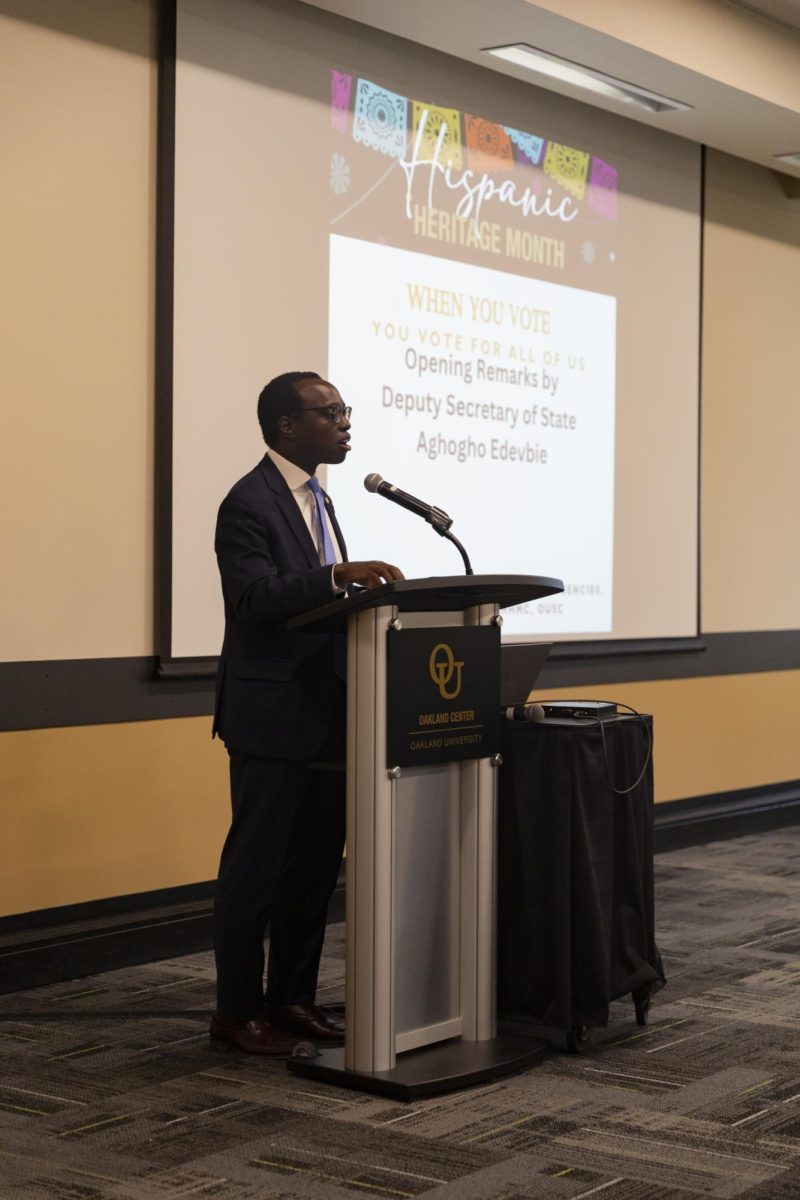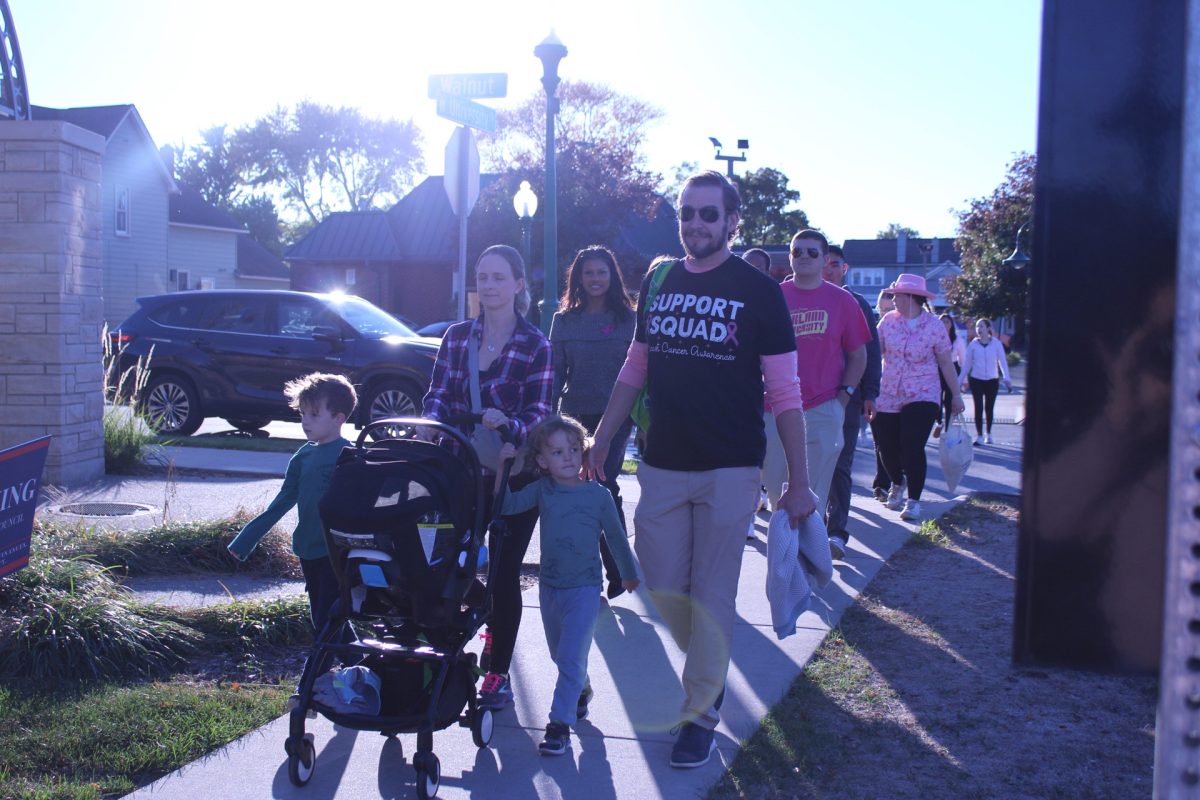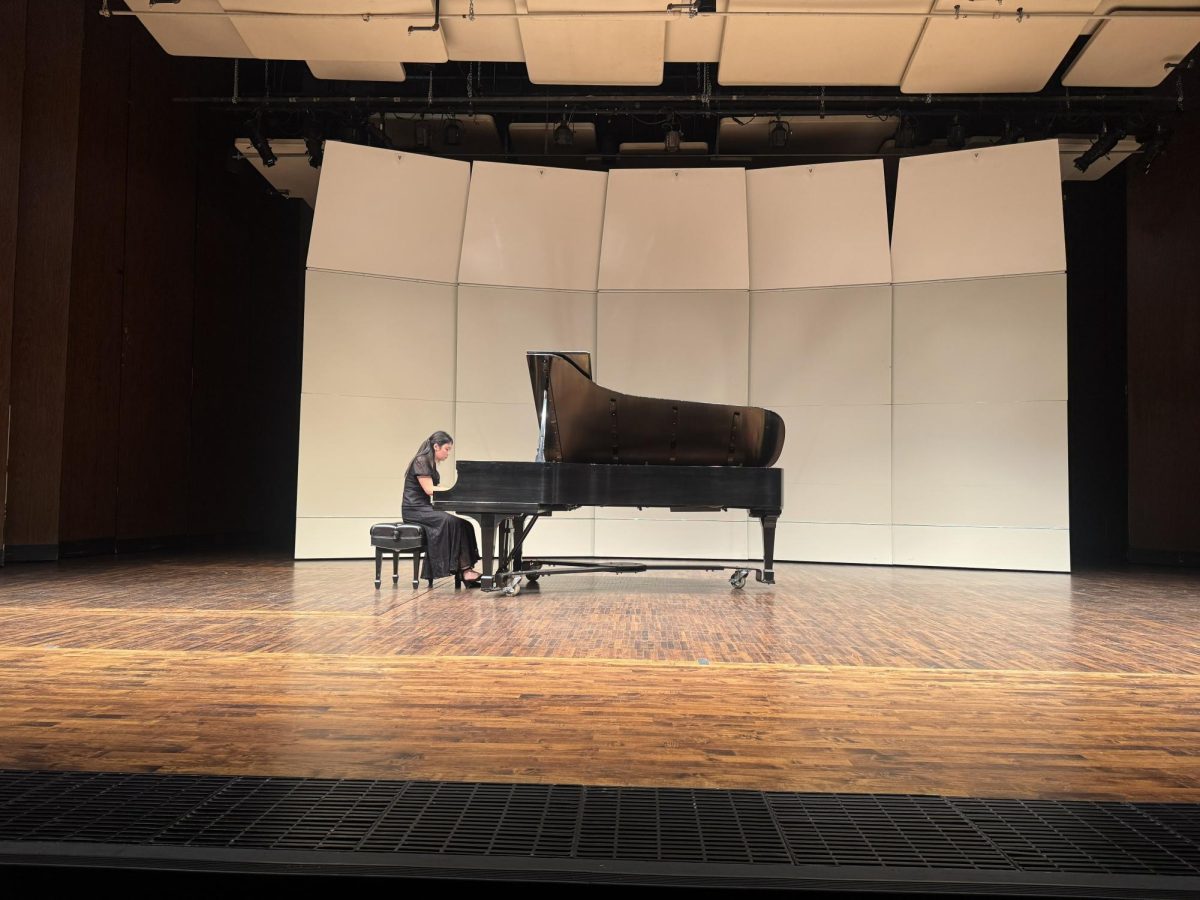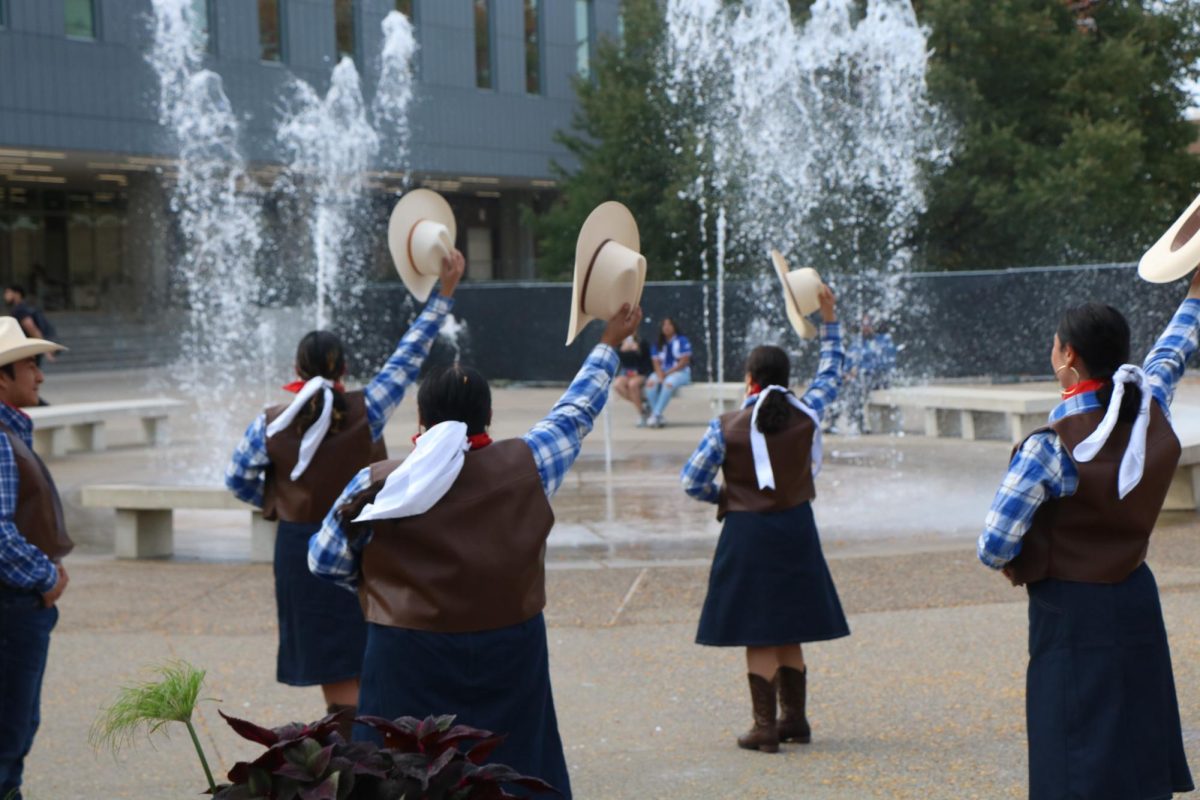Hispanic Heritage Month kicked off at Oakland University on Sept. 16 with a visit from Deputy Secretary of State, Aghogho Edevbie, to talk about voting rights and responsibilities with students who are voting for the first time.
“Hispanic Heritage Month at Oakland means many things,” Aura Cazares, assistant dean of students and director of Diversity Equity and Inclusion, said. “It means celebrating our culture, but it also means that we’re holding hands and locking arms to make sure that we better and enhance everybody’s lives.”
In light of this year’s elections, Edevbie and the social welfare and civic engagement organization, MI PODER, offered resources to avoid misinformation.
“Approximately 36 million Latinx voters are projected to cast their ballots this November in the US, with nearly 370,000 in Michigan alone,” MI PODER said in their infographics. “As the fastest growing demographic, Latinx voters have increasing influence on governmental decisions at all levels … through our participation in civic engagement we can protect our future through our collective power.”
Edevbie explained that Michigan has begun to push for and pass laws that allow easier voter registration for minorities.
“We really want to make sure that people, regardless of their language standards, can still have access to our ballot,” Edevbie said. “We are actually trying to be more forward-looking as a state because we’ve proposed something called the Michigan Voting Rights Act.”
Passed on Sept. 17, the Michigan Voting Rights Act requires communities that hit a certain threshold to translate voting materials into different languages, Edevbie said. Cazares highlighted the importance of taking advantage of these new initiatives that make voting registration easier.
“We have a lot of issues that we have to overcome in our community as Latinos,” Cazares said. “If we don’t participate in the process, and we don’t have a say in the opportunity to reshape how we live moving forward, then we have to live with the results of the decisions made when other people vote.”
Edevbie also touched on voting registration for out-of-state students, mentioning that OU students do not have to have a Michigan driver’s license to register. They can present their existing ID as proof of identity to use the absentee voting option. An affidavit form was also listed as a resource in the absence of an ID at in-person voting.
Attendees were also directed to michigan.gov/democracymvp to sign up to be poll workers. “We always need poll workers all across the state, especially in areas where we’ve increasingly become polarized,” Edevbie said.
To get reliable information on local and national races, students were directed to vote411.org while the Oakland County Bar Association website was recommended to research judicial candidates.
Edevbie concluded the opening ceremony with a reflection on the action steps and results of civic engagement.
“Your county executive in Oakland County is up for election this year, so you might want to vote for your county executive,” Edevbie said. “Counties, along with the state government, get a lot of their funding from the federal government. So, vote for your congressperson who’s on the ballot this year and then that member of Congress might have a little bit more leverage or a little bit more influence if the President of the United States is from the same party that they are. So, you might want to vote for president too.”
“This is a system that can work as long as people are involved and get out there and make their voices heard,” Edevbie said.
For a full list of Hispanic Heritage Month events, visit the Center for Multicultural Initiatives website.






